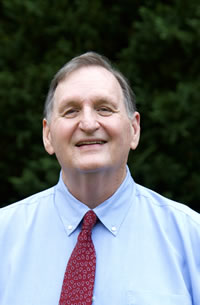Friday, November 19 | 10:30 AM – 11:30 AM ET | Virtual
Harnessing Research for Social and Policy Change: Thinking Differently About Impact
Kelly D. Brownell, Ph.D., Professor of Psychology and Neuroscience, Director of the World Food Policy Center, Duke University
 Kelly Brownell is Robert L. Flowers Professor of Public Policy, Professor of Psychology and Neuroscience, and Director of the World Food Policy Center at Duke University. From 2013-2018 he served as Dean of the Sanford School of Public Policy at Duke.
Kelly Brownell is Robert L. Flowers Professor of Public Policy, Professor of Psychology and Neuroscience, and Director of the World Food Policy Center at Duke University. From 2013-2018 he served as Dean of the Sanford School of Public Policy at Duke.
Prior to joining the faculty at Duke, Brownell was at Yale University where he was the James Rowland Angell Professor of Psychology, Professor of Epidemiology and Public Health, and Director of the Rudd Center for Food Policy and Obesity. While at Yale he served as Chair of the Department of Psychology and as Head of Silliman College.
Brownell was elected to membership in the National Academy of Medicine (formerly the Institute of Medicine) in 2006 and that same year Time magazine listed Kelly Brownell among “The World’s 100 Most Influential People” in its special Time 100 issue featuring those “.. whose power, talent or moral example is transforming the world.” He has received numerous awards and honors for his work, including the Lifetime Achievement Award from the American Psychological Association, Graduate Mentoring Award from Yale, the James McKeen Cattell Award from the New York Academy of Sciences, the Distinguished Alumni Award from Purdue University, the Lifetime Achievement Award from Rutgers University, and the Distinguished Scientific Award for the Applications of Psychology from the American Psychological Association.
Dr. Brownell has published 15 books and more than 350 scientific articles and chapters. He has served as President of several national organizations, including AABT now known as ABCT (1988-1989) and has advised the White House, members of congress, governors, state attorneys general, world health and nutrition organizations, and media leaders on issues of nutrition, obesity, and public policy.
People in research careers hope their work has impact on the world, yet models of training and criteria for career advancement can impede this ambition. This is especially true given how the academic community conceptualizes inward-looking definitions and measures of impact that do not account for what the world might view as a more sensible definition – whether lives improve, problems get prevented, and social and policy changes occur. This traditional academic approach leads to programmatic research, which produces useful but typically incremental information. A “strategic science” model might be considered as a companion to programmatic research and might broaden how the field conceptualizes impact. The model involves the identification of change agents, designing research to address strategic gaps in information, and communication of the research back to the change agents. A model for harnessing science to create social and policy change will be presented with a number of concrete examples.
Categories: Public Policy, Behavioral Medicine, Prevention
Keywords: Impact, Policy
All levels of familiarity with the material
Participants earn 1 continuing education credit
Outline:
- How the academic world defines impact.
- The limiting nature of this definition.
- A conceptual model of strategic science.
- Relationship of strategic to programmatic science.
- Examples of strategic science to create social and policy change.
- Is this legitimate work for scientists?
At the end of this session, the learner will be able to:
- Present a model for conceptualizing research impact.
- Provide concrete examples of the use of the conceptual model in research settings.
- Discuss how the model can apply in traditional research settings.
Long Term Goal:
- Recognition that there are alternatives to traditional ways of conceptualizing research impact
Recommended Readings:
Brownell, K.D., & Roberto, C.A. (2015). Strategic science with policy impact. Lancet, 385, 2445-2446.
Jacobson, M.F., Krieger, J., & Brownell, K.D. (2018). Potential policy approaches to address diet-related diseases. JAMA, 340, 341-342.
Brownell, K.D., Farley, T., Willett, W.C., Popkin, B.M., Chaloupka, F.J., Thompson, J.W., & Ludwig, D.S. (2009). The public health and economic benefits of taxing sugar-sweetened beverages. New England Journal of Medicine, 361, 1599-1605.
